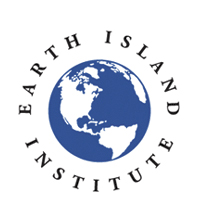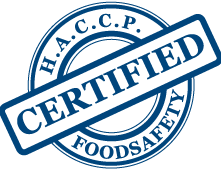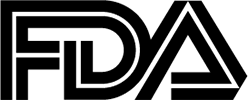Certifications

Friend of the Sea
Friend of the Sea is a non-profit non-governative organization (NGO), whose mission is to conserve the marine habitat.
Friend of the Sea is now a main international certification project for products originating from both sustainable fisheries and aquaculture. Products and their origins are audited onsite by independent international certification bodies, against strict Friend of the Sea sustainability criteria.
Friend of the Sea Criteria follow the FAO – Guidelines for the Ecolabelling of Fish and Fishery Products from Marine Capture Fisheries. In particular, only products from stocks which are NOT OVEREXPLOITED can be certified (Art. 30 FAO Guidelines).
SUSTAINABILITY is no doubt the keyword to the future: the only way to ensure a future for us and for the generations to come. Sustainable Seafood is part of this philosophy. Friend of the Sea is constantly engaged in awareness campaigns to make all people, adults and children, conscious of the importance of purchasing only certified sustainable seafood.
As Wild Caught Products is committed to sustainable and environmentally sound fish sourcing practices, we are currently undergoing full certification.

Earth Island
Earth Island Institute monitors tuna companies around the world to ensure the tuna is caught by methods that do not harm dolphins and protect the marine ecosystem. Our standards prevent harm to dolphins and are adhered to by more than 90% of the world’s tuna companies.
As Wild Caught Products is committed to sustainable and environmentally sound fish sourcing practices, we are currently undergoing full certification.

Hazard Analysis and Critical Control Points (HACCP):
HACCP is a systematic preventive approach to food safety from biological, chemical, and physical hazards in production processes that can cause the finished product to be unsafe, and designs measurements to reduce these risks to a safe level. In this manner, HACCP is referred as the prevention of hazards rather than finished product inspection. The HACCP system can be used at all stages of a food chain, from food production and preparation processes including packaging, distribution, etc. The Food and Drug Administration (FDA) and the United States Department of Agriculture (USDA) say that their mandatory HACCP programs for juice and meat are an effective approach to food safety and protecting public health. Meat HACCP systems are regulated by the USDA, while seafood and juice are regulated by the FDA. The use of HACCP is currently voluntary in other food industries.
All our sourcing, production, processing and exporting is guided by and is fully HACCP approved vessels, factories and principles as enforced locally by the National Regulator For Compulsory Specifications (NRCS) who issue our Health Certificates.

FDA
The Food and Drug Administration (FDA or USFDA) is a federal agency of the United States Department of Health and Human Services, one of the United States federal executive departments. The FDA is responsible for protecting and promoting public health through the regulation and supervision of food safety, tobacco products, dietary supplements, prescription and over-the-counter pharmaceutical drugs (medications), vaccines, biopharmaceuticals, blood transfusions, medical devices, electromagnetic radiation emitting devices (ERED), cosmetics, animal foods & feed[5] and veterinary products.
For our American exports, we are fully FDA approved.

Kosher
Kosher foods are those that conform to the regulations of kashrut (Jewish dietary law). Food that may be consumed according to halakha (Jewish law) is termed kosher in English, from the Ashkenazi pronunciation of the Hebrew term kashér (כָּשֵׁר), meaning “fit” (in this context, fit for consumption). Food that is not in accordance with Jewish law is called treif (Yiddish: טרײף or treyf, derived from Hebrew טְרֵפָה trāfáh)
Our processing facility is Kosher certified.
